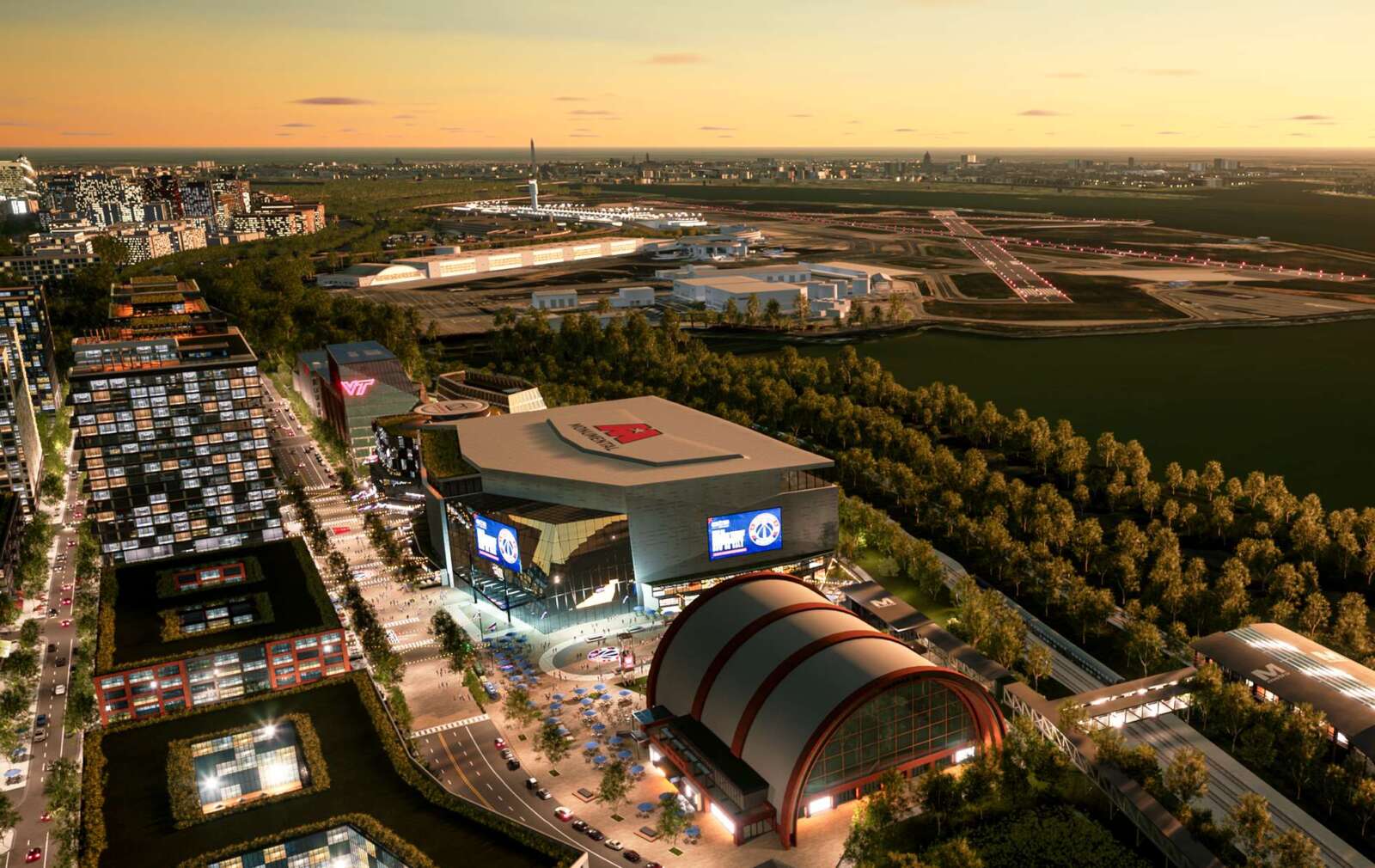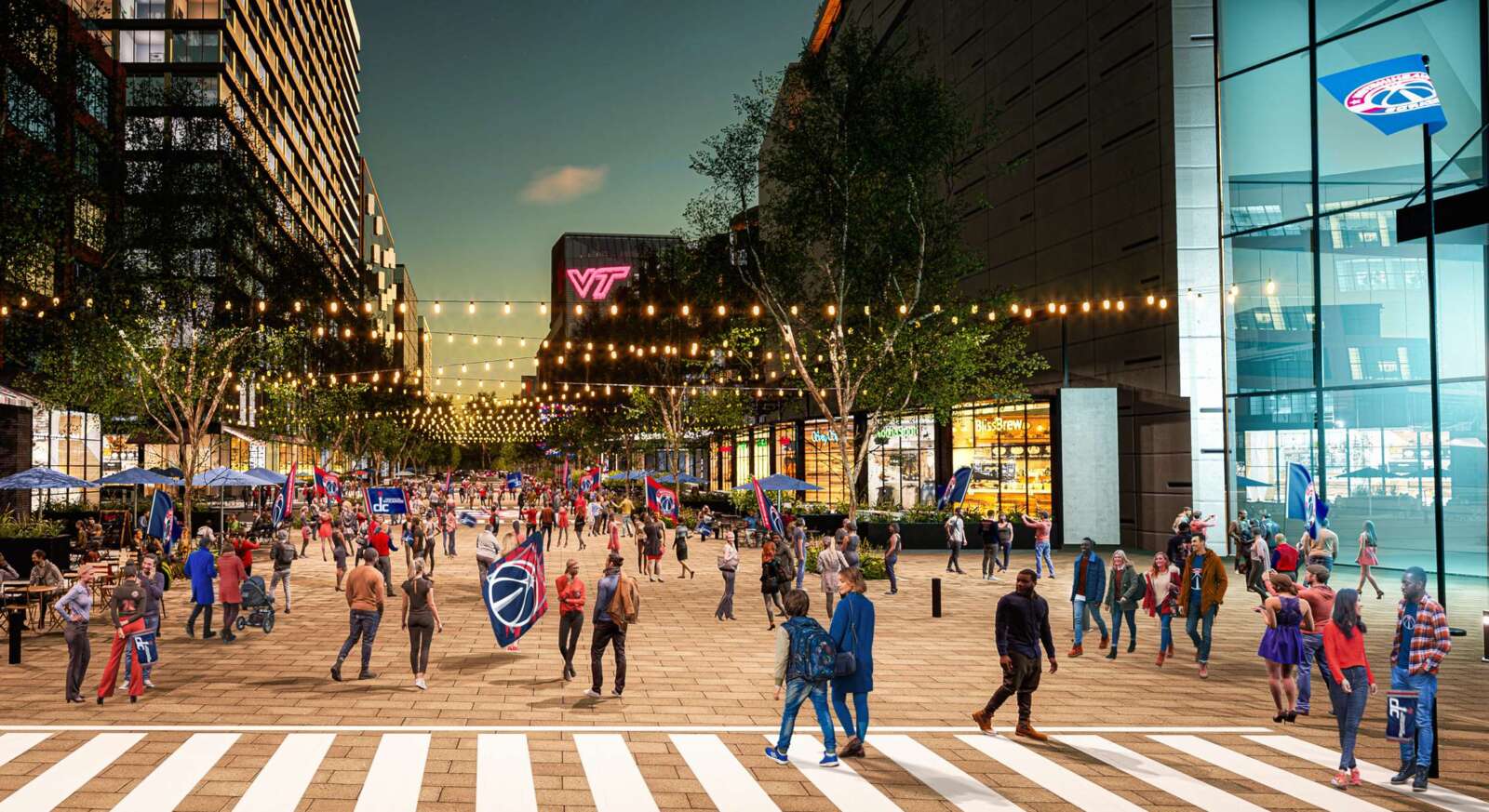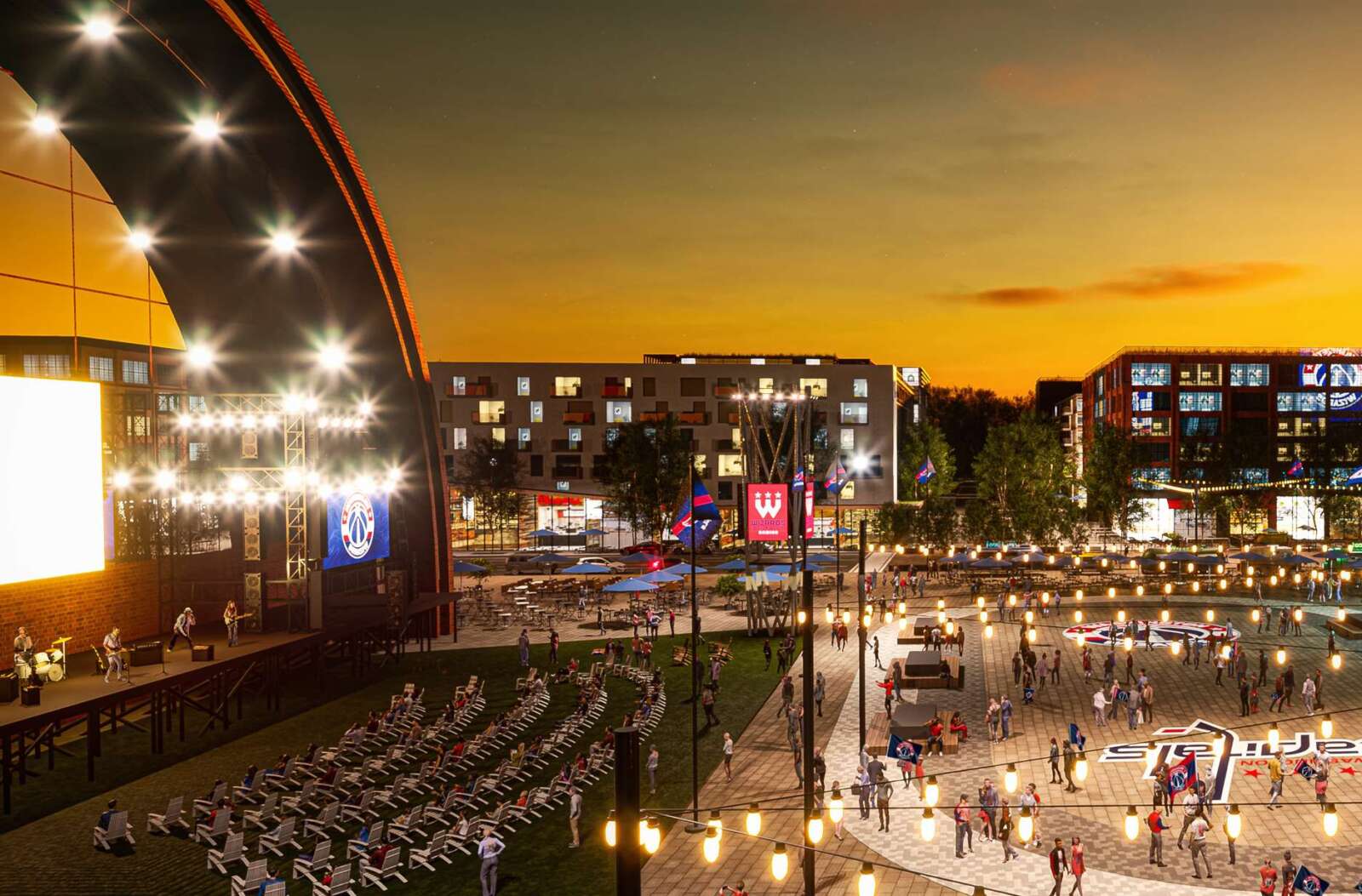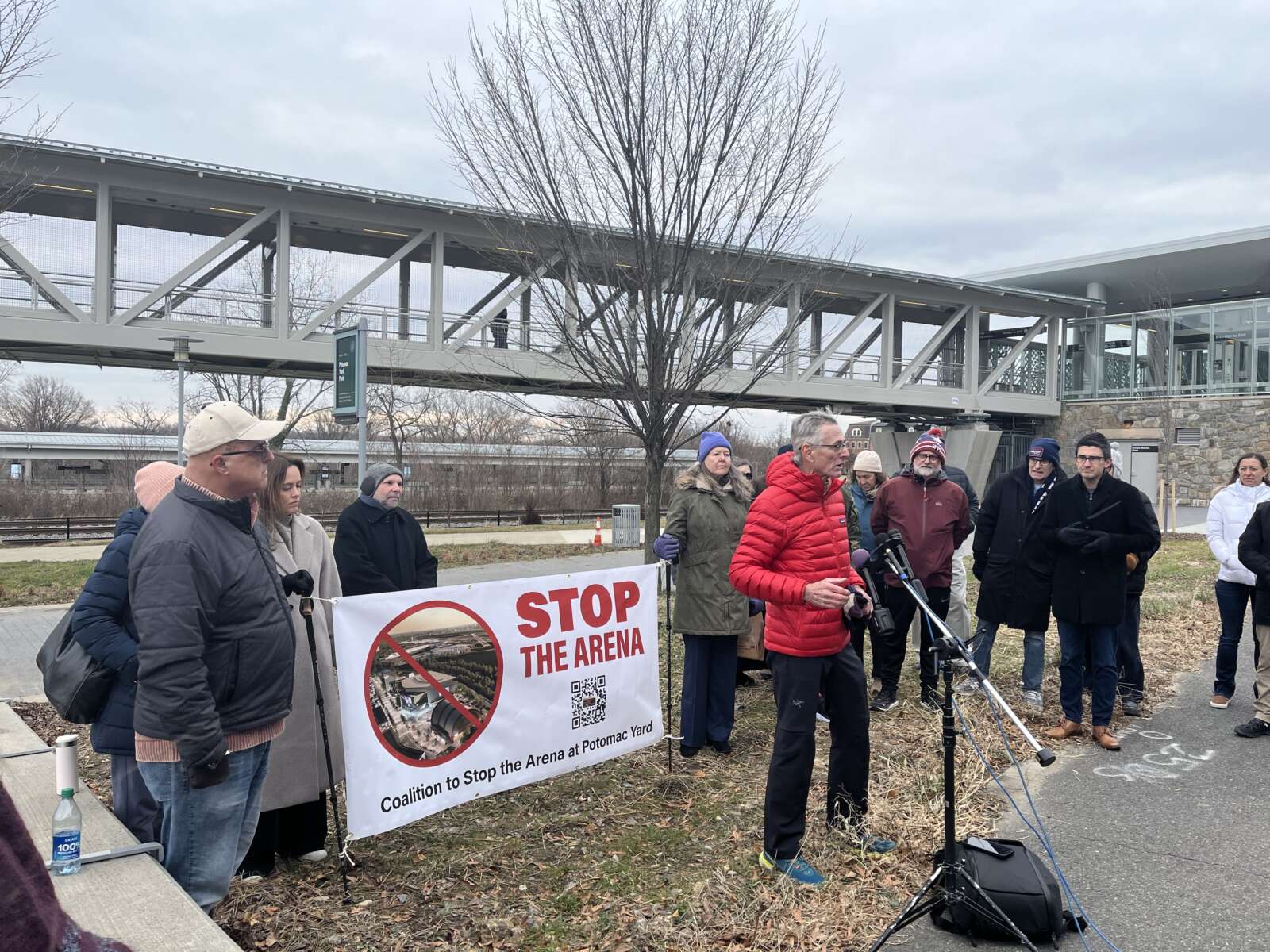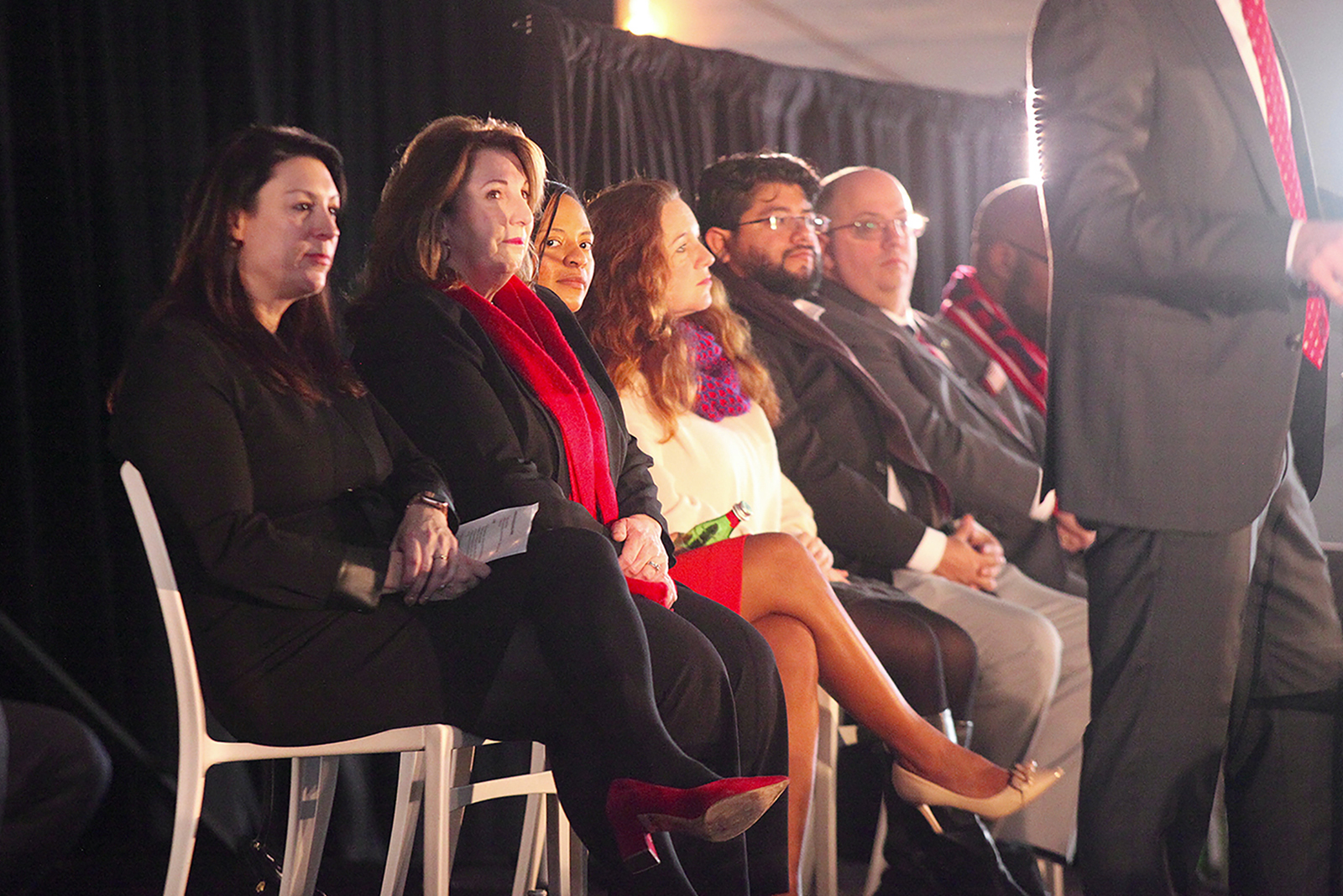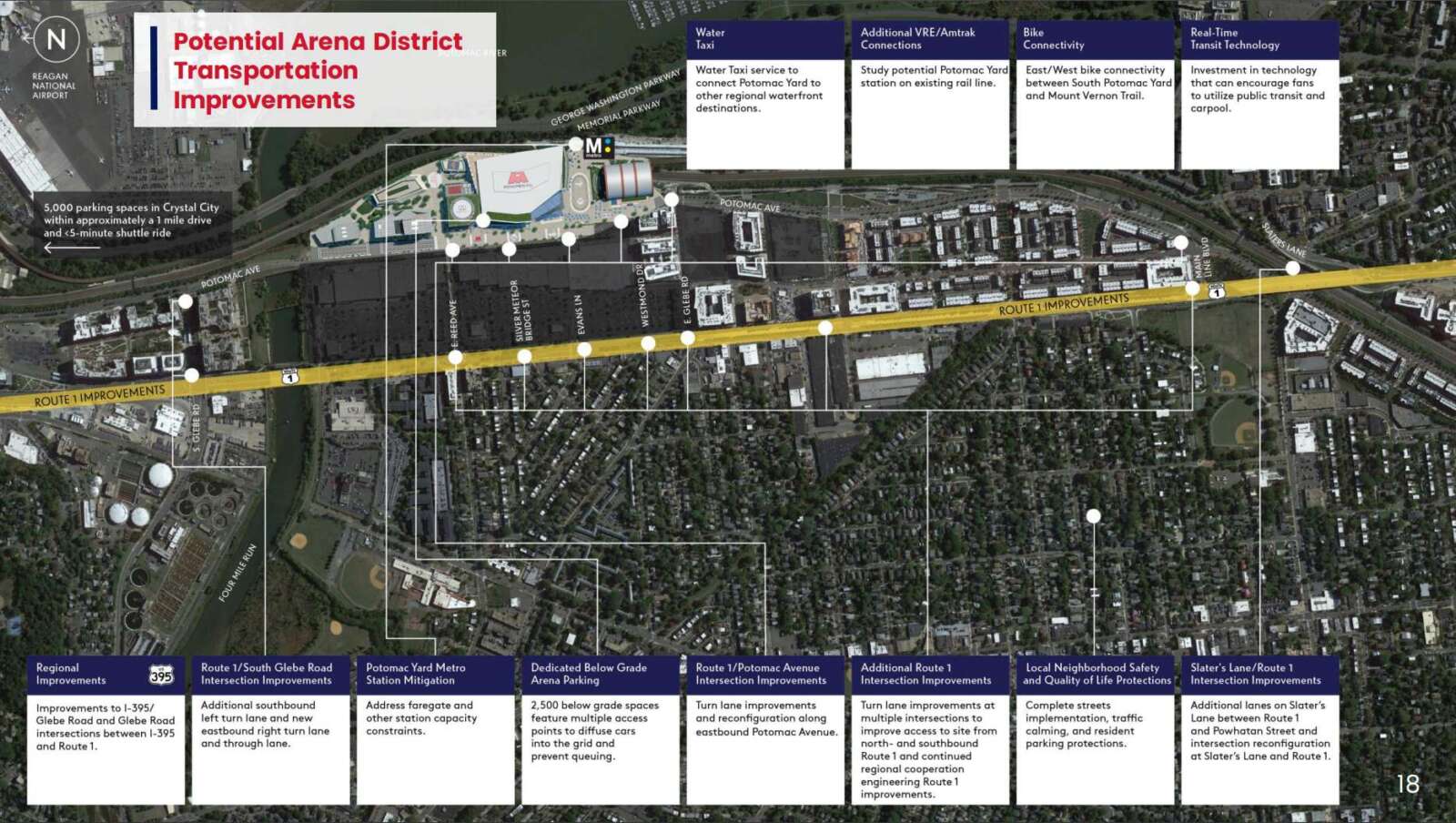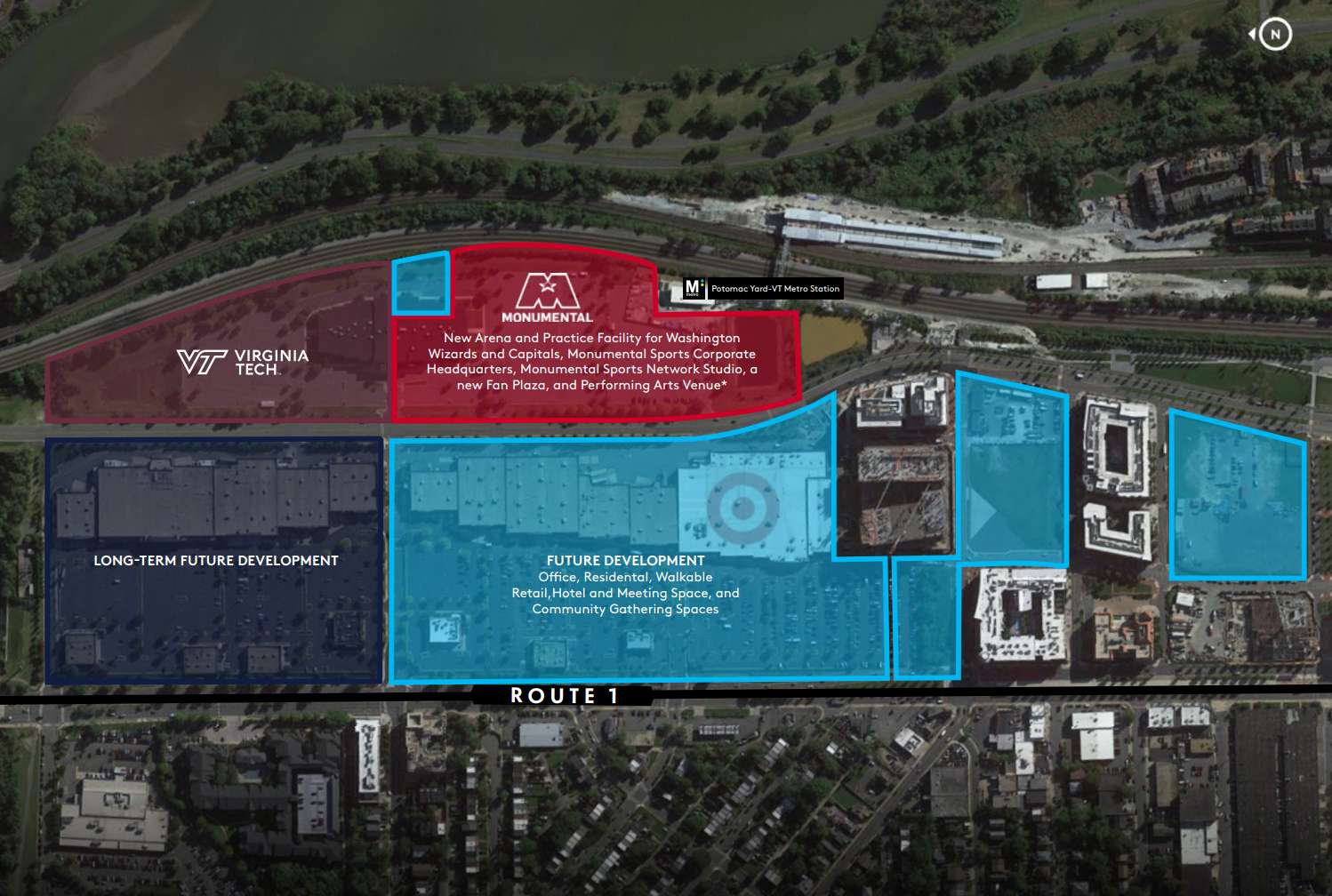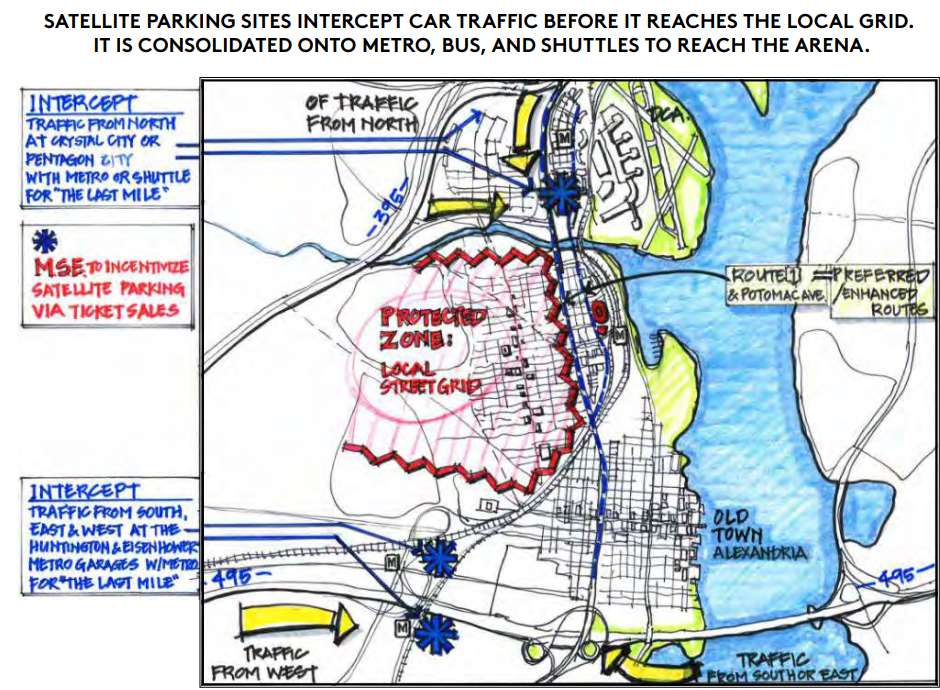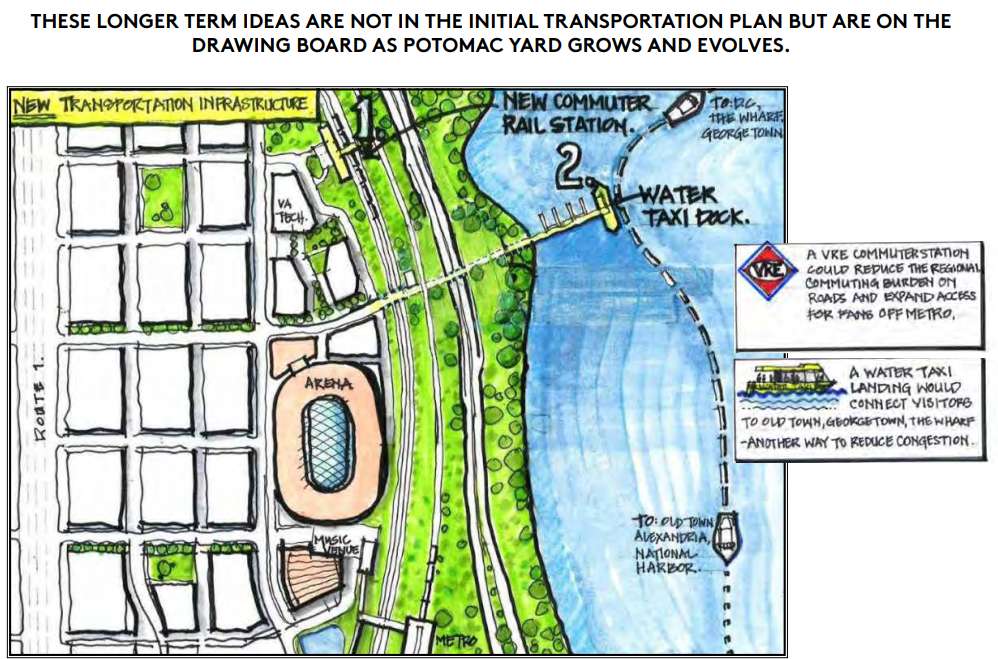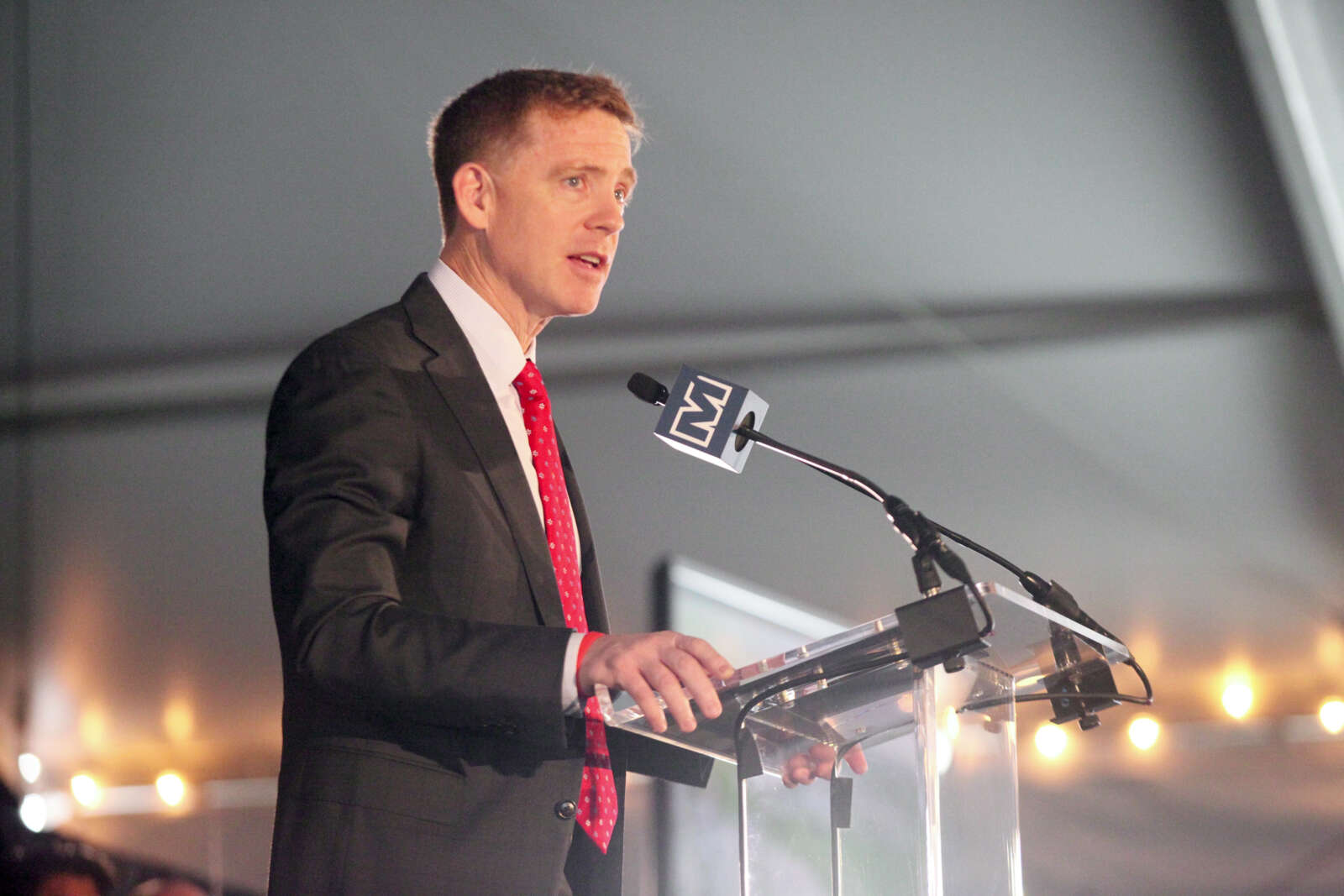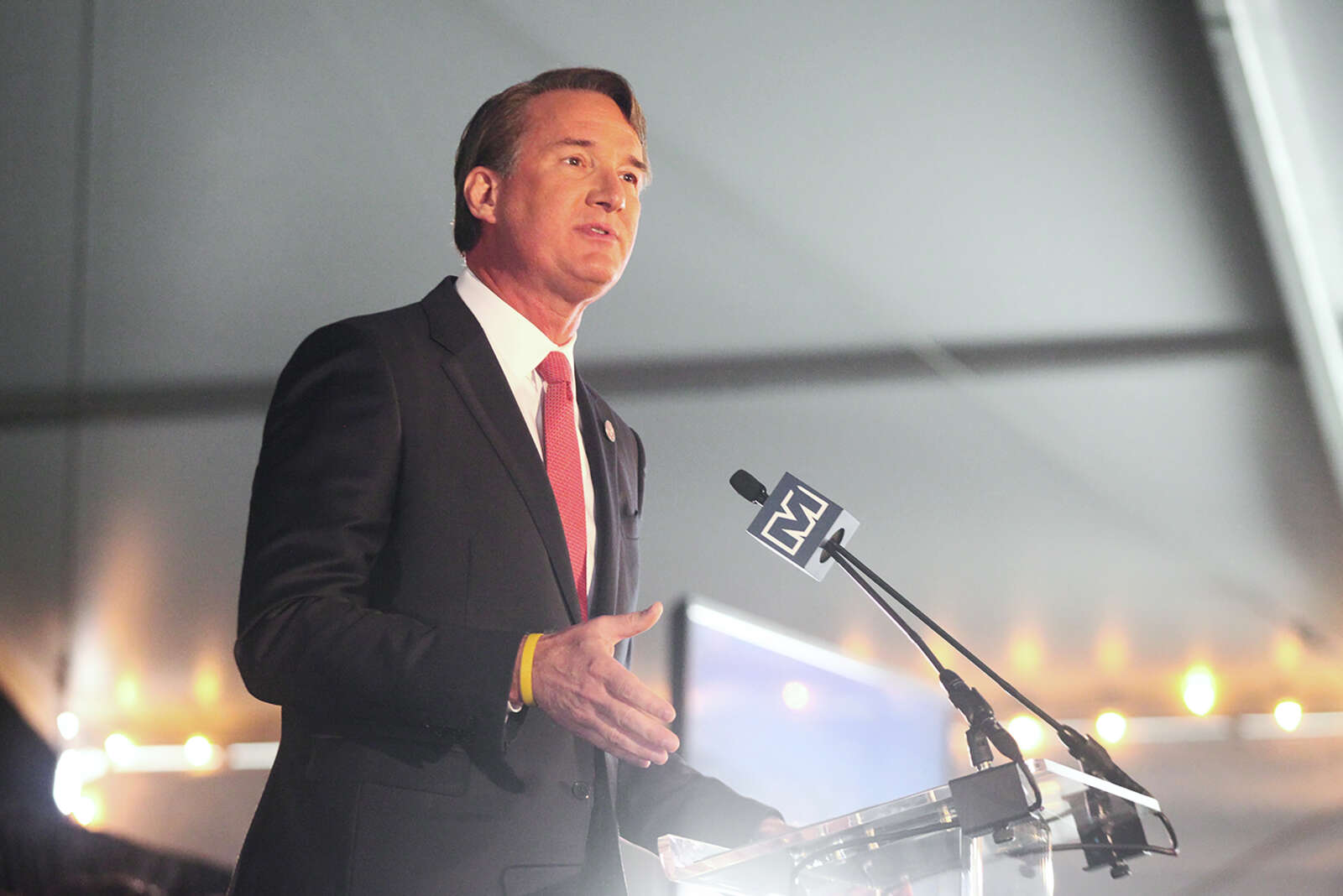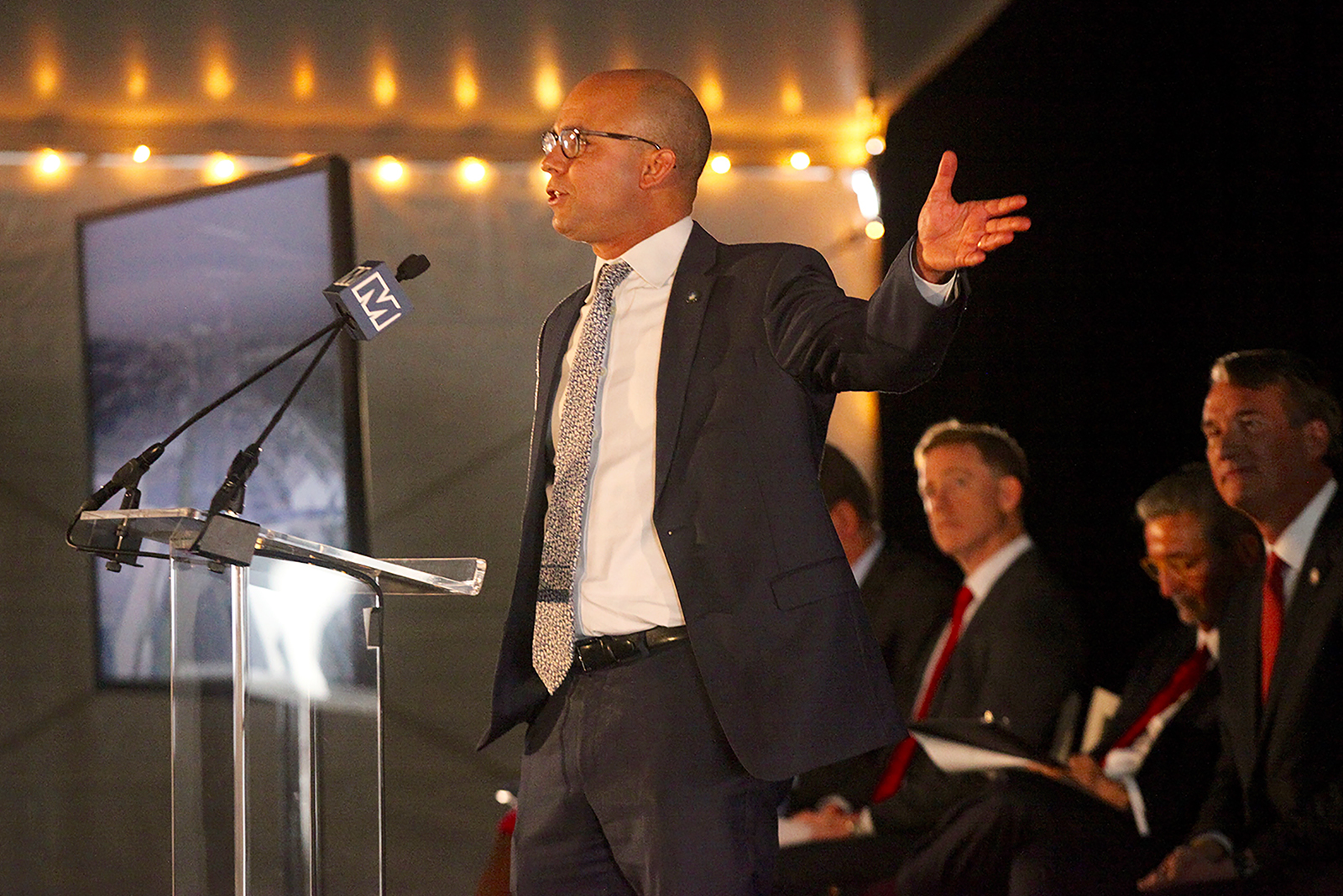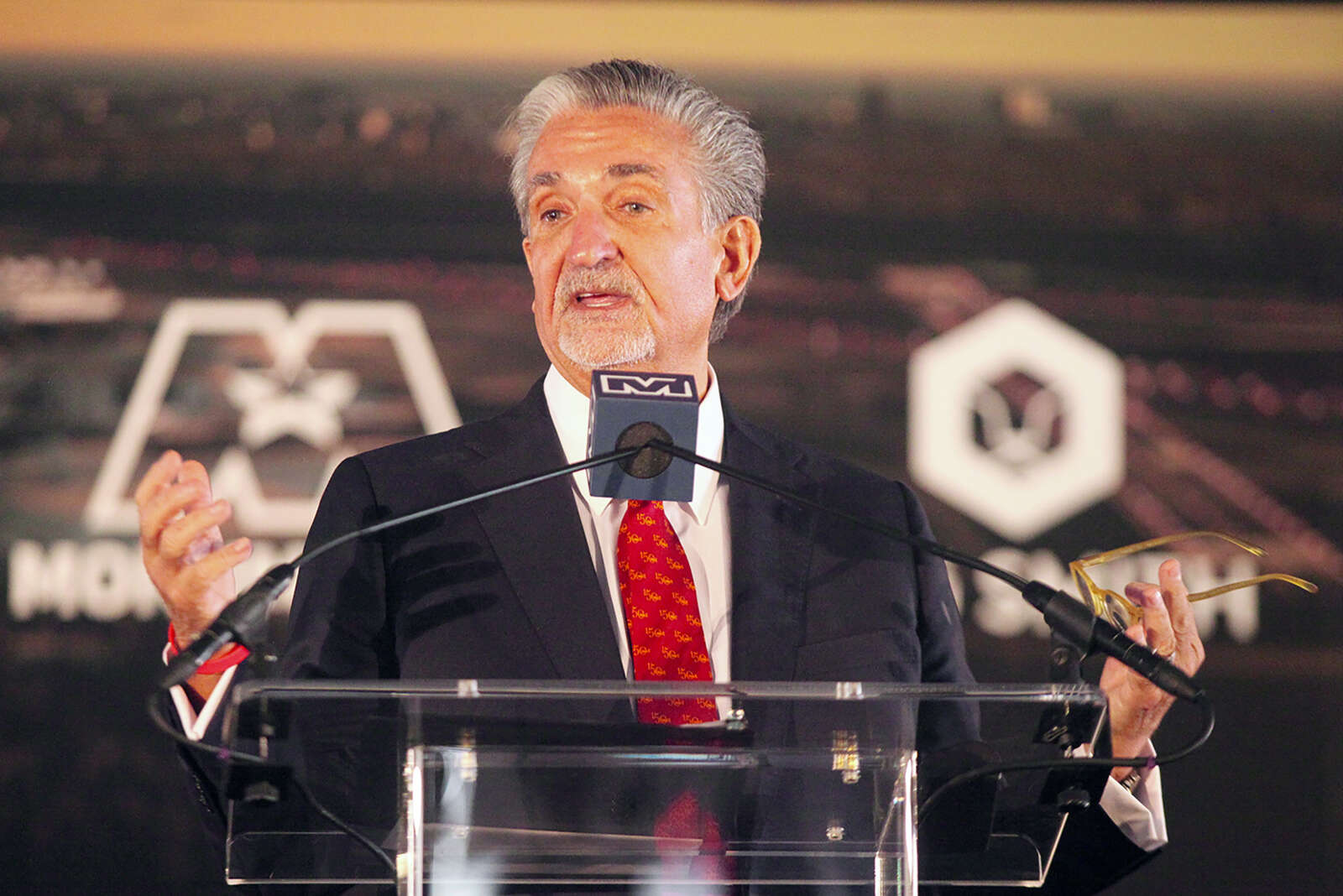The Potomac Yard arena’s demise has been met by mixed emotions from public officials, and even landowner JBG Smith.
Now that the Washington Wizards and Capitals are definitely not coming to Alexandria and will stay in D.C., a proverbial question mark looms over the 12-acre property.
JBG Smith released a scathing message after Alexandria backed out of the deal on March 27, and then lightened up in a recent interview with the Washington Business Journal. Now CEO Matt Kelly says that the Virginia Tech Innovation Campus will be the anchor for the area, and that with Amazon HQ2 nearby in Crystal City, Potomac Yard will become a tech corridor.
Mayor Justin Wilson said that the economic benefits of the arena and entertainment district could have funded a number of city priorities, including a potential reduction of personal property taxes for residents. He wasn’t so optimistic on the future of the property, and called the city leaving the deal “perhaps the most negative financial event for our schools, public safety and human services in recent history.”
“Regardless of your perspective on the North Potomac Yard proposal, it held the potential to dramatically reshape Alexandria’s economy, easing the burden on our residential taxpayers and enabling expanded investment in critical services to our residents, as well as yielding new land for a school, open space and committed affordable housing,” Wilson wrote in his April newsletter.
The initial agreement was hailed by Republican Governor Glen Youngkin as a once-in-a-lifetime opportunity, and it was vigorously supported by Wilson and Ted Leonsis, the billionaire owner of both teams.
News of the proposal broke on Dec. 13, surprising even D.C. Mayor Muriel Bowser, who was in the midst of negotiating with Leonsis to keep both teams at the Capital One Arena. Youngkin proudly announced the deal onstage at Potomac Yard, flanked by U.S. Sen. Mark Warner (D), Leonsis, Kelly, Stephanie Landrum of the Alexandria Economic Development Partnership and the entire City Council.
But the sudden nature of the deal, as well as a short, three-month public relations campaign by the city and Monumental Sports, had little effect in Richmond. A House of Delegates bill establishing a stadium authority to issue $1.5 billion in taxpayer-funded bonds was stopped in the Senate Appropriations Committee by Sen. Louis Lucas (D-18), and the city left the negotiating table on March 27.
Leonsis has since turned back to D.C., where both teams will likely remain for decades.
The Coalition to Stop the Arena at Potomac Yard loudly protested the project.
“Economic development that benefits all residents of Alexandria and the Commonwealth can only happen with transparent input from the citizens who will be affected,” said Andrew Macdonald, a former Alexandria vice mayor and co-founder of the Coalition. “Backroom deals negotiated in secret and sprung on the citizens at the last minute must not be standard operating procedure in Alexandria or anywhere else ever again.”



